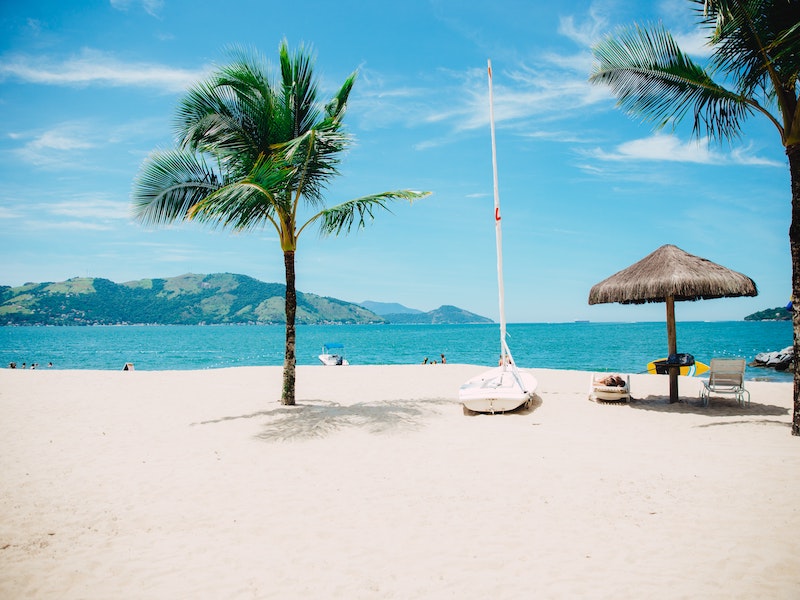I’m living my best life — it’s a phrase often used by social media influencers. The idea is that they have grabbed life by the scruff of the neck, and they are living every moment to the maximum. Now, what it means to live your best life is highly subjective; the best life of one is a nightmare for another. There are lots of people who live highly fulfilling lives and become wonderful people but don’t have any desire to tell anyone else. But, amongst those who do love to tell everyone how great their lives are, there tend to be lots of similarities.
Think Instagram influencers flying from one country to the next. Think private jets and photos in front of glamorous cars they probably don’t own. Think boojee parties and long days at the beach. Think fancy hotels and high-end restaurants.
You get the idea.
It is a specific type of living your best life that is self-indulgent, materialistic and based on consuming the world around you.
A symbol of the problem
This decadent jet-set lifestyle represents a civilisation totally out of balance with its environment. It is powerful in leading others to aspire to live such a lifestyle and pine over it as if this is the epitome of a successful life.
The life they glamorise is the life led by the richest one per cent. That tiny proportion is responsible for more than twice as much carbon emissions as the poorest 3.1 billion people.
The thing about these brilliantly successful people who are so proud of living their best lives is that their decadent, highly carbon-intensive lifestyles are a symbol of the ecological crisis.
If everyone lived this depiction of their best lives, we would have had runaway climate change some time ago. What makes their claim to be ‘living their best lives’ bizarre is that they are contributing more than most to destroying the fabric of the environment we all depend on to live flourishing lives.
Everyone else will end up suffering because they are so busy living their fantabulous lives.
A product of ideology
Yet, these individuals can’t be blamed for behaving as they do. They are products of the society that has moulded them to be that way. They are not some liberated free-thinking tribe who are ‘winning’ the game of life. They are an outcome of a system that glamorises and encourages each person to be a self-interested individual.
Being self-interested forms the basis of our understanding of human motivations. The argument says that each person is inherently selfish and seeks to maximize their enjoyment by consuming the world around them. Economists refer to this as maximising utility.
This belief of what drives human motivations forms the bedrock of our economy. And so, these ‘influencers’ are merely an extreme expression of desired economic behaviour.
They are great for the economy because they consume gluttonously. That’s exactly what needs to happen for the economy to thrive because when people buy lots of stuff, it leads to economic growth.
No limits
In the culture of progress that dominates today, we have created a system that allows your decadent dreams to become a reality. Anything is possible in a culture with no limits.
And it is this attitude that the world is some kind of playground that has led us onto a catastrophic path where we are destroying the integrity of the natural world. The irony then is that so many of these ‘living your best lifers’ take most of their content being surrounded by the majesty of the natural world. All the while, their attitudes, behaviour and the ideology they unknowingly embrace is destroying that very world.
You may not be able to see the damage — and that’s one of the major challenges we are facing. The changes are happening on a scale that isn’t perceived by us day to day.
If all of these people who live a jet-set lifestyle continue to live with no sense of limits, we will continue to destroy the resilience of the natural world. The more pressure we place on it, the more likely it will flip into a new state. That state will not be hospitable for life as we know it, and it could lead to social collapse.
If that situation happens, not so many people will be claiming to live their best lives.
Out of balance
At the heart of the problem, there seems to be no acknowledgement that a culture of no limits can’t last for very much longer. We must all behave as if our behaviour has an impact on everyone else. People can’t just do what they want when they want. But the ideology underpinning society is that we are all free, self-interested individuals who can lead lives exactly how we want to lead them.
That’s all good and well if we want to destroy the environmental conditions we depend on to thrive. If we don’t, and I imagine most people do not want that situation to happen, they must accept they have to live within constraints.
Rather than glamorising living the individualistic fantasy life, there must be a realisation that we are all connected and dependent on one another to live fulfilling lives. As a celebration of the individual underpins our culture, this eventuality doesn’t look likely. And so, we will continue to have people claiming to be living their best lives — a symbol of everything wrong with a culture of decadence.



